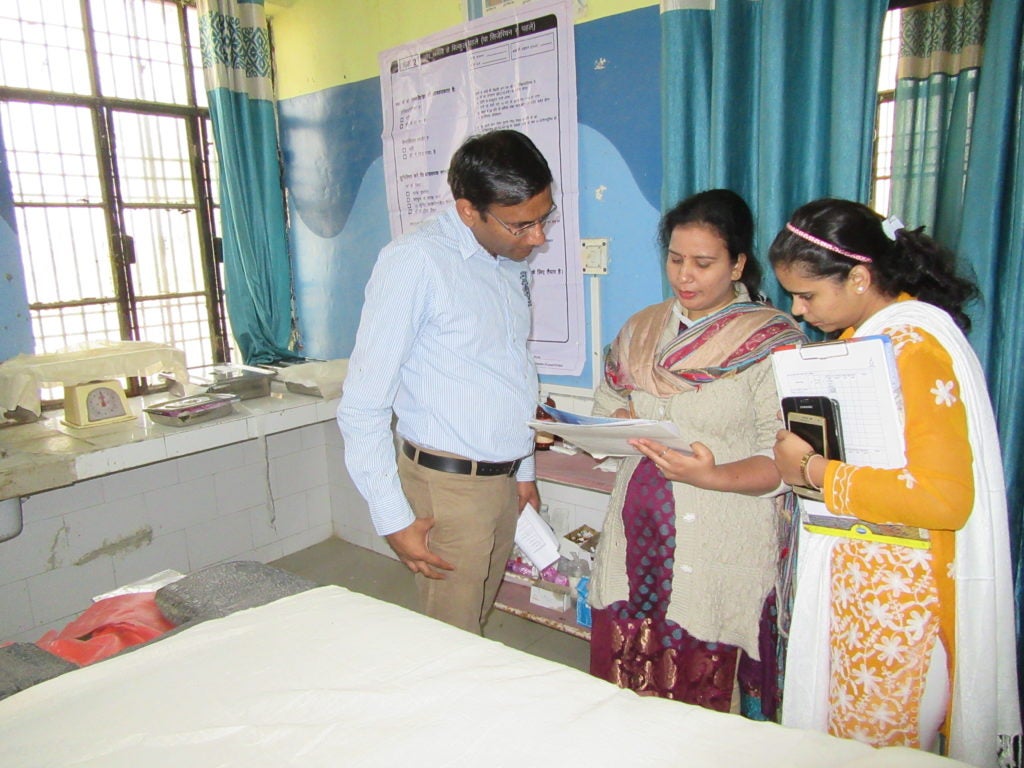Why does context matter for implementation success?
Ariadne Labs’ Atlas Context Assessment tools help health care facilities of all types prepare for successful quality improvement projects.
Every day, health care facilities around the world strive to improve the quality of the care they provide by implementing new tools, initiatives, and processes proven to have an impact. However, many of these interventions fail to deliver the expected results, and it’s not always clear why.
The context of the facility where a tool is being implemented plays an important role in its success or failure. By understanding a facility’s context — its unique combination of people, culture, resources, operations, and more — implementers are better equipped to know their strengths and areas for improvement and can tailor their strategy for success.
The Atlas Context Assessment Toolkit offers a suite of tools and resources to help health care facilities understand their context and use it to their advantage to improve care.
ATLAS CONTEXT ASSESSMENT TOOLKIT
The Atlas Initiative Context Assessment Toolkit helps health care facilities efficiently assess, document, and learn about their strengths and challenges. Atlas combines simple tools with Ariadne’s expertise in innovation, implementation, and scale-up to help organizations successfully implement and sustain improvement projects.
The Toolkit includes a series of anonymous surveys completed by leaders, health care workers and support staff, and implementation team members at various points throughout a quality improvement project. By involving people at all levels of an organization, Atlas allows organizations to identify differences in perceptions and experiences from leadership to frontline staff. And unlike other context assessment tools, Atlas focuses on factors that organizations can take action to improve on.
- Pre-Implementation Survey & Report:
Once a solution has been identified, but before implementation begins, this survey assesses how a facility performs in key areas such as leadership commitment, staff motivation, and quality improvement experience. The results are compiled into a report that helps facilities understand their strengths, areas for improvement, what additional resources they need, and how they can adapt their implementation strategy to align with their strengths.
- Progress Survey & Report
This survey is completed 6 – 12 months after implementation launch. It assesses the facility’s performance in key contextual areas and compares it to the baseline results from the pre-implementation survey, allowing organizations to track their progress over time.
- Pulse Check Questions
These 10 questions are answered by the implementation team every few months to identify and rectify any issues that could jeopardize success.
- Resources
Atlas also provides supporting resources such as guidance on how to address common challenges and templates to share results with leadership to help users close gaps in areas that they’ve identified as needing improvement.
All surveys are completed electronically, and users receive summary results. The context assessment can be used at the department, clinic, or unit level, or throughout an organization.
By completing an Atlas Context Assessment, organizations can make both short- and long-term improvements that will increase their likelihood of successful implementation projects now and in the future.
Assessing Context in Low- Resource Settings
Ariadne Labs’ BetterBirth program has developed an adapted toolkit specifically for use in low-resource settings. While many of the tools are similar, the surveys contain additional questions relevant in low-resource settings. The toolkit also includes a supplemental conversation guide.
A 2022 webinar shared findings on the toolkit’s acceptability, feasibility, and utility in Indonesia, where it was used in a facility mentoring and supervision program, and in Ethiopia, where it was tested with LifeBox’s Clean Cut surgical infection prevention program. This evaluation was conducted under MOMENTUM, a suite of USAID projects that build capacity in low- and middle-income countries to identify and scale up high-impact maternal, neonatal, and child health interventions. Learn more about Ariadne Labs’ MOMENTUM work here.
Atlas Data Repository
Using data from completed Atlas Context Assessment surveys, Ariadne Labs has been compiling a first-of-its-kind database that helps to identify which contextual factors most influence implementation success.
Any health systems completing the Atlas surveys contribute data to this repository. Ultimately, we aim to use this data to:
- Understand which factors are more or less important to success depending on the type of intervention, setting, or phase of implementation.
- Identify the contextual factors that high-success implementers have in common.
- Learn how using the context assessment reports affects implementation success so that we can continue to refine our tools.
Atlas Initiative Resources, Tool and Guides
Atlas Initiative Team











